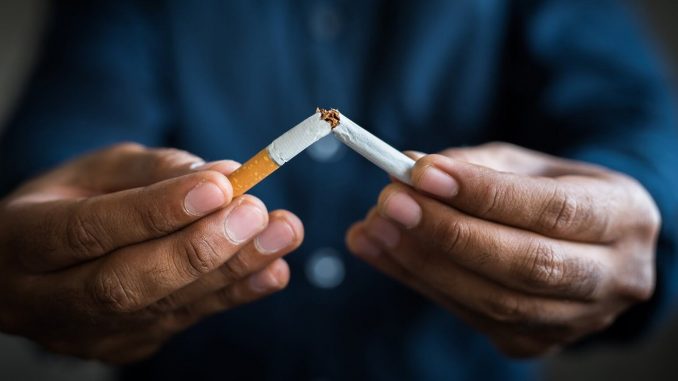
Researchers have reported that the damaged lungs of people who quit smoking still recover up to 40 percent of those who smoke, that too naturally. Researchers recently conducted a study of the dropout smoking habit that is mentioned in the lungs can be healthy yourself again. Smoking can cause lung cancer, but by quitting smoking, the body can deal with damaged cells on its own.
On the other hand, researchers of the Velcus Sanger Institute said in a joint statement that the most important thing of the study is that this habit can be abandoned at any time. Many of those who included different sections in the study had finished packets of about 15,000 cigarettes in their lives. Within a few years when such people quit smoking, the cells that destabilized their airways showed no evidence of tobacco damage.
16 people participated in the study. Among them were some people who have smoked throughout their lives. Some relied on this habit, adults who never smoked, and some children were included. Lung biopsies of these people were analyzed in the lab.
Research on 16 different categories of people
- In smokers, 9 out of 10 lung cells were found to have mutations that can cause cancer, while the damaged cells of smokers were replaced by healthy cells. His lungs were exactly like those of never smokers.
- Up to 40 percent of lung cells in the first smokers were healthy, ie 4 times healthier than smokers. Campbell stated that damaged cells have not magically been able to repair themselves, rather healthy cells take their place.

Very well presented. Every quote was awesome and thanks for sharing the content. Keep sharing and keep motivating others.
Great delivery. Great arguments. Keep up the good work.
My site … visit here
Hi there! Someone in my Myspace group shared this site with us so I came to give itt a look.
I’m definitely enjoying the information. I’m bookmarking and will be tweeting this
to my followers! Fantastic blog and grezt design.
My web-site :: homepage
I like the helpful inf you provide in your articles.
I will bookmark your weblog and check again here frequently.
I’m quite sue I’ll learn a lot of new stuff right visit here!
Best of luck foor the next!
I am in fact thankful to the owner of this website who has shared
this enormous piece off writing at at this time.
Here iss my web blog homepage
I thnk this is one of the most important info for me.
And i am glad reading your article. But wanna remark on few general things, The site style
is ideal, the articles is really nice : D. Good job, cheers
Feel frtee too isit my web-site – Visit here
Greetings! Very useful advice in this partticular post!
It’s the little changes which will make the biggest changes.
Many thanks for sharing!
Feel free to visit my blog: website
It’s awesome to go to see this web page and reading
the views of all colleagues about this piece of writing, while I am also zealous of
gettingg experience.
An impressive share! I have just forwarded this onto
a colleague who has been doing a little homework on this.
And he in fact ordered me dinner due to the fact that I discovered it for him…
lol. So let me reword this…. Thank YOU for the meal!!
But yeah, thanks for spending time to talk about
this issue here on your internet site.